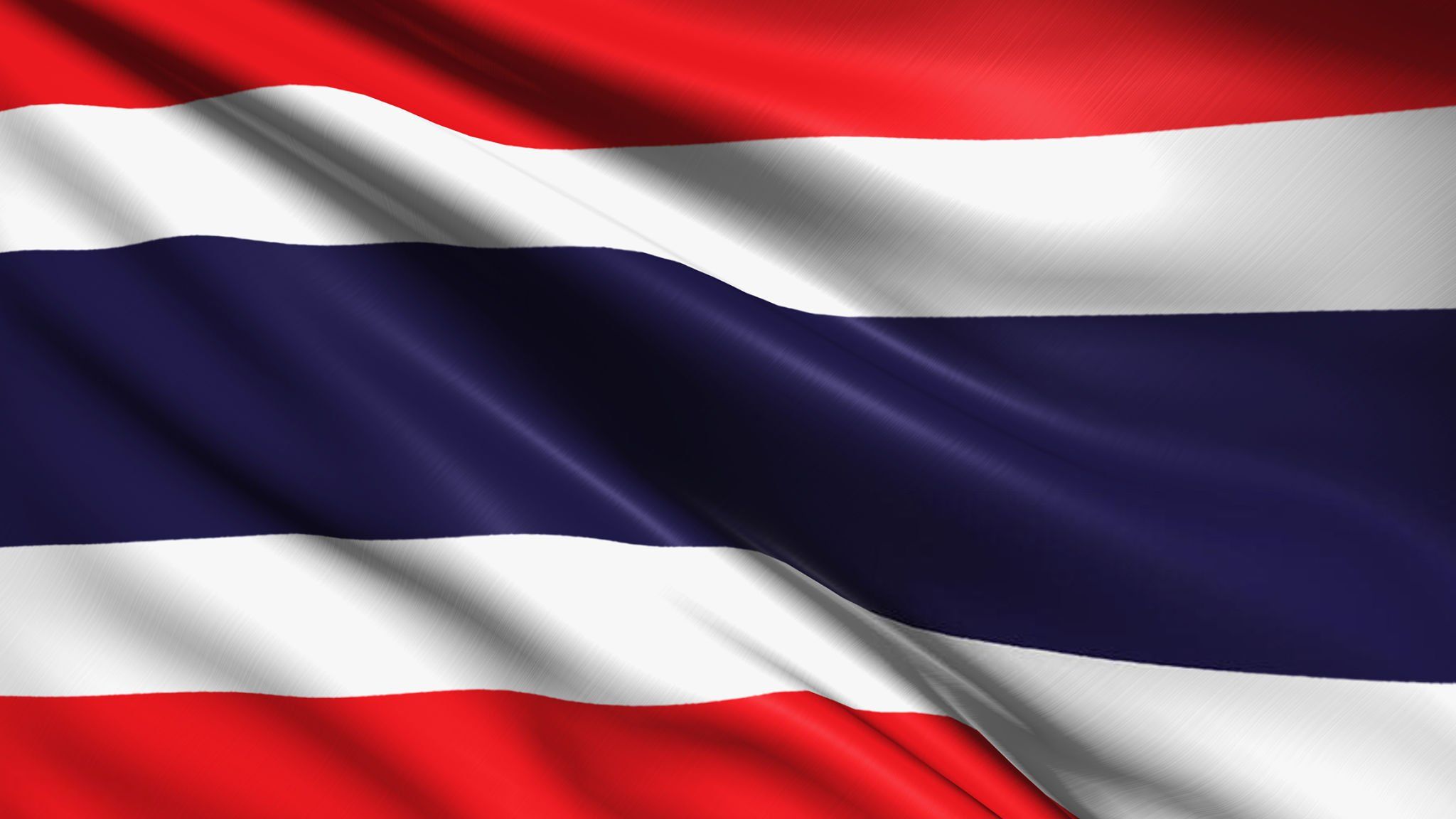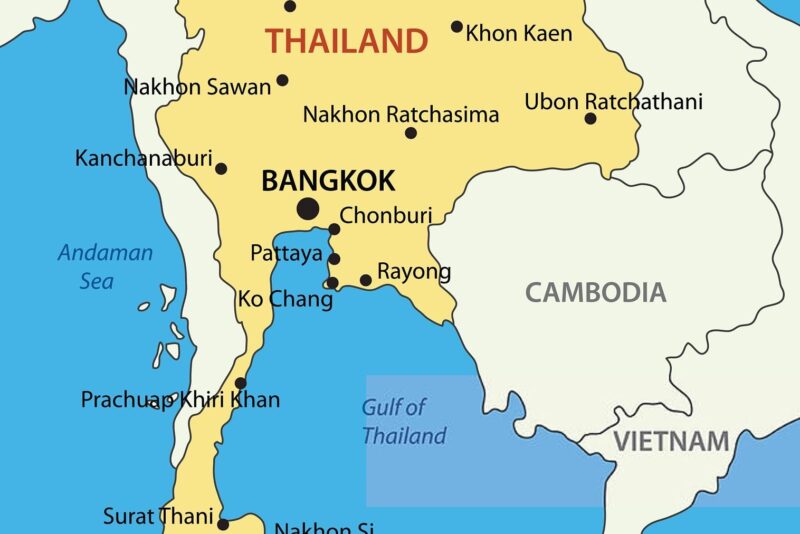Thailand, officially known as the Kingdom of Thailand, is a country located in Southeast Asia. Known for its rich cultural heritage, vibrant landscapes, and warm hospitality, Thailand is one of the most visited tourist destinations in the world. The country has a unique blend of traditional customs and modern advancements, making it an interesting place both to visit and understand. Below is an overview of Thailand in various aspects including its geography, history, culture, economy, and government.
Geography
Thailand is bordered by Laos and Cambodia to the east, Myanmar to the west, and Malaysia to the south. To the north, it shares borders with China and Laos. Its geographic location places it in the heart of the Southeast Asian mainland, making it a vital gateway between the Indian Ocean and the Pacific Ocean. Thailand has a diverse topography that includes mountain ranges in the north, fertile plains in the central region, a vast coastline along the Gulf of Thailand to the south, and the Andaman Sea to the west. The country covers an area of approximately 513,120 square kilometers (198,120 square miles) and is the 50th largest country in the world by land area.
Thailand is divided into 76 provinces, which are grouped into four main regions: the Northern, Northeastern, Central, and Southern regions. The country’s diverse landscapes range from rugged mountains to tranquil beaches, providing a variety of environments for wildlife, agriculture, and human habitation. Thailand’s climate is tropical, characterized by three distinct seasons: hot, rainy, and cool.
History
The history of Thailand dates back thousands of years, with evidence of ancient civilizations in the region. Early Thai kingdoms such as the Sukhothai Kingdom (1238–1438) and the Ayutthaya Kingdom (1351–1767) played crucial roles in shaping the country’s culture, politics, and social structures. Sukhothai is often regarded as the cradle of Thai civilization, where the Thai alphabet was developed, and many of the cultural traditions of the country began.
The Ayutthaya Kingdom, established in 1351, was a powerful kingdom that lasted for over four centuries before falling to the Burmese in 1767. After the fall of Ayutthaya, King Taksin established a new capital in Thonburi (now part of Bangkok), before King Rama I moved the capital to its present location in Bangkok in 1782, marking the beginning of the Chakri Dynasty, which still rules Thailand today.
Thailand has had a unique history compared to its Southeast Asian neighbors, as it managed to avoid colonization by European powers. In the 19th century, under King Rama IV (King Mongkut) and King Rama V (King Chulalongkorn), Thailand modernized and established diplomatic relations with the Western powers, avoiding colonization by playing European powers against each other. The kingdom’s political landscape was further transformed in the 20th century, with the 1932 Siamese Revolution transitioning the country from an absolute monarchy to a constitutional monarchy.
In 1939, the country officially changed its name from the Kingdom of Siam to Thailand. The 20th century saw multiple coups, political instability, and military influence, which shaped modern Thai politics. The country also experienced significant economic growth in the late 20th and early 21st centuries, transforming from an agrarian society to an industrialized economy.
Culture
Thailand’s culture is a blend of indigenous traditions, religious beliefs, and external influences, particularly from India, China, and Cambodia. The dominant religion in Thailand is Theravada Buddhism, which plays a central role in shaping the country’s values, art, architecture, and daily life. Many of the country’s grandest temples, such as Wat Phra Kaew (Temple of the Emerald Buddha) and Wat Arun in Bangkok, reflect the importance of Buddhism in Thai culture.
Thai people have a strong sense of community and family, and respect for hierarchy is deeply ingrained in society. The Thai royal family is highly revered, and the King is considered the spiritual and symbolic leader of the nation. The country celebrates many traditional festivals such as Songkran (the Thai New Year), Loy Krathong (the festival of lights), and the King’s birthday, all of which are opportunities for people to come together in celebration.
Thailand’s cuisine is world-renowned, with its emphasis on balancing sweet, sour, salty, and spicy flavors. Thai food includes dishes such as Pad Thai, Tom Yum Goong (spicy shrimp soup), and Som Tum (papaya salad). The country’s cuisine varies regionally, with distinct flavors and ingredients found in the northern, northeastern, central, and southern regions.
Traditional Thai dance, music, and art are important cultural expressions, and Thai silk and handicrafts are famous worldwide. Muay Thai, the national sport of Thailand, is a form of martial art that has gained international popularity.
Economy
Thailand is the second-largest economy in Southeast Asia, after Indonesia, and is classified as an upper-middle-income country by the World Bank. Its economy is diverse, with key sectors including agriculture, manufacturing, services, and tourism.
Agriculture has traditionally been the backbone of Thailand’s economy, with rice, rubber, and seafood being major exports. Thailand is the world’s largest exporter of rice and a leading producer of rubber. Over time, the country has become increasingly industrialized, with strong manufacturing sectors such as electronics, automobiles, textiles, and chemicals.
Tourism is one of Thailand’s most important industries, with millions of visitors traveling to the country each year. The country is famous for its beautiful beaches, historical sites, vibrant cities, and cultural festivals. Bangkok, Chiang Mai, Phuket, and Pattaya are some of the most popular tourist destinations.
The Thai economy has faced challenges such as political instability, natural disasters, and the global financial crisis. However, the country has shown resilience and continues to attract foreign investment, particularly in technology, energy, and infrastructure projects.
Government and Politics
Thailand is a constitutional monarchy with a parliamentary democracy. The current monarch, King Maha Vajiralongkorn (Rama X), ascended the throne in 2016 after the death of his father, King Bhumibol Adulyadej (Rama IX), who had reigned for 70 years. The monarchy is a symbol of unity and stability in the country, and the King’s role is largely ceremonial. However, the monarchy wields significant influence over national affairs.
The political system in Thailand is a parliamentary democracy, with the Prime Minister serving as the head of government. The country has a bicameral legislature consisting of the House of Representatives and the Senate. The political landscape has been marked by periodic military coups, with the most recent coup occurring in 2014. Since then, the military junta led by General Prayuth Chan-o-cha has maintained control over the country, despite the return to a civilian government in 2019.
Thailand’s political scene is highly polarized, with divisions between urban and rural populations, as well as competing factions that align with different political ideologies. These tensions often result in protests, and the country has experienced significant political unrest in recent years.
Conclusion
Thailand is a dynamic and fascinating country with a rich cultural heritage, diverse landscapes, and a resilient economy. It has successfully maintained its sovereignty in the face of external pressures and continues to evolve in the modern world. Despite facing political challenges, Thailand remains one of Southeast Asia’s most important nations and a regional hub for trade, culture, and tourism. The country’s unique blend of tradition and modernity, along with its reputation for hospitality and beauty, makes it a remarkable place on the global stage.



 Show all photos
Show all photos 
